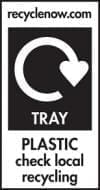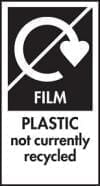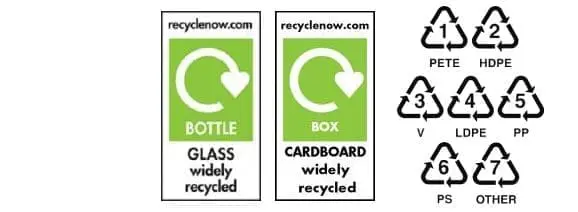We all know the importance of recycling but do we know exactly what we can recycle and how?
In this blog, we’re going to go through each of the recycling symbols, what they mean and how you can recycle them.
On-pack recycling labels (OPRL)
The on-pack recycling labels will be your primary stop for where and how you should be recycling your items. They’re specifically designed to be as informative and as clear as possible; however, they don’t know where you’re located in the country and what recycling systems your council has in place. For this, recyclenow.com has a great calculator to tell you exactly where you can go to recycle certain items.
The on-pack recycling labels are the work of Recycle Now, a national recycling campaign for England, supported and funded by Government. Recycle Now’s logo is the basis for all OPRLs and should be easily recognisable.
Widely Recycled
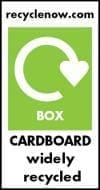
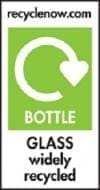
This logo denotes that over 75% of England’s councils provide household recycling collection for that packaging type. Bear in mind that you may be in the 25% of councils that don’t recycle this waste, so research your council’s recycling facilities thoroughly.
Here you can see how the label tells you which part of the packaging it refers to (BOX/BOTTLE) and the material it consists of (CARDBOARD/GLASS), helping you easily separate your packaging into recyclables and non-recyclables.
Check Local Recycling
This logo tells you that this part of the packaging is only recycled by 20-70% of local councils. Check with your local council before putting this material into your recycling bin.
Not Currently Recycled
This logo lets us know that this part of the packaging is only being recycled by 20% of councils. We would recommend that you still check with your local council as to whether this material is being recycled in your area, as it does not definitively mean it’s not recycled.
Widely recycled at recycling points
This is similar to the ‘widely recycled’ label, however it applies to local recycling provisions. 75% of councils have recycling provisions for this material, but less than 75% of them collect at kerbside.
Check with your local council for kerbside and collection point recycling facilities.
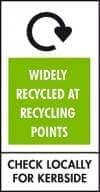
Recycle with Carrier Bags
Some materials, such as plastic films, can now be recycled at supermarket carrier bag collection points.
These materials are often in cereal packets, kitchen roll wraps and grocery produce.
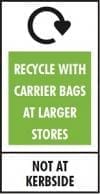
Metal Paint Cans
The majority of empty metal paint cans can be deposited for recycling at most local authority recycling centres.
As always, check your local council website for more information.
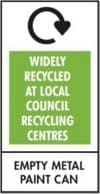
Other Symbols
The Mobius Loop
This symbol indicates that the product is capable of being recycled. It does not guarantee that the material will be accepted by your local recycling centre or collection. It does not signify that the product is made from recycled materials.

The Green Dot
This Green Dot’s meaning is often confused with the Mobius Loop’s. This dot does not mean that the packaging is recycled or recyclable. It shows that the producer has financially contributed to the recovery and recycling of packaging.

Plastics
The Mobius Loop with a number in the centre and a letter code bellow signifies what kind of plastic the packaging is made from. The code should help you identify whether it’s recyclable in your area.
- PET
Polyethylene Terephthalate is one of the most common plastics that you will encounter. It’s usually what drinks bottles and tubs are made from. - HDPE
High-density polyethylene is another of the common plastics that you will find. It’s often used in toys, kitchenware and cable insulation. - PVC
Polyvinyl chloride is what most modern window frames and doors are made from but is also used for wire insulation, flooring and footwear. The logo on plastic will often only have a ‘V’ below the symbol. - LDPE
Low Density Polyethylene is commonly used in toys, carrier bags and general packaging. - PP
Polypropylene is often used for products that are injection moulded and blow moulded and is widely recycled by thermoplastic-processing methods. - PS
Polystyrene is not just that white, fluffy packaging material that gets everywhere, it’s also the kind of material used for CD cases and cosmetic packs. - Other
Other kinds of plastic not defined by the previous groups.
Glass
The majority of glass is recyclable. If you are depositing your glass bottled or jars at a bottle bank, remember to separate the glass by colour and remove any non-glass components like bottle tops and lids.

Recyclable Aluminium
This logo lets you know that this product is made from recyclable aluminium.

Waste Electricals
Where you see this logo, it means that waste electrical items, such as household appliances, mobile phones and IT equipment, can be recycled.
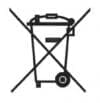
Compostable
This logo certifies that the product is ‘industrially compostable’ according to European standard EN 13432/14955’
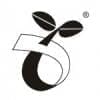
Paper

This is the National Association of Paper Merchants’ stamp. It certifies that the product is made from a minimum of 50% genuine waste paper or board fibre.
Check with your local recycling centre if they accept this kind of paper, as paper can only be recycled a certain number of times.
Wood
This icon is from the Forest Stewardship Council and identifies products that contain wood from sustainable and certified forests.

